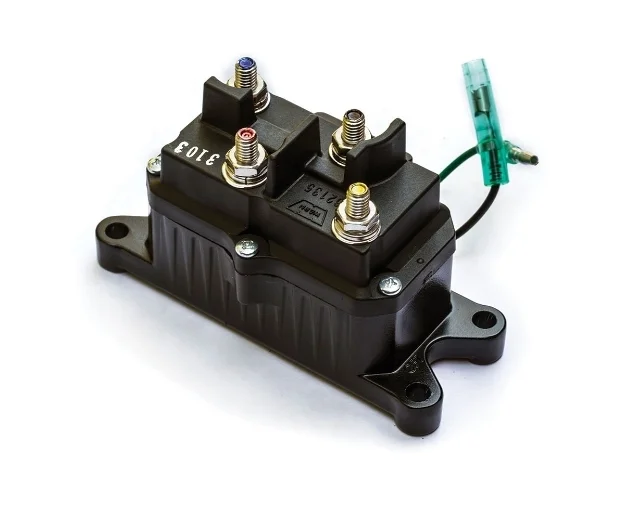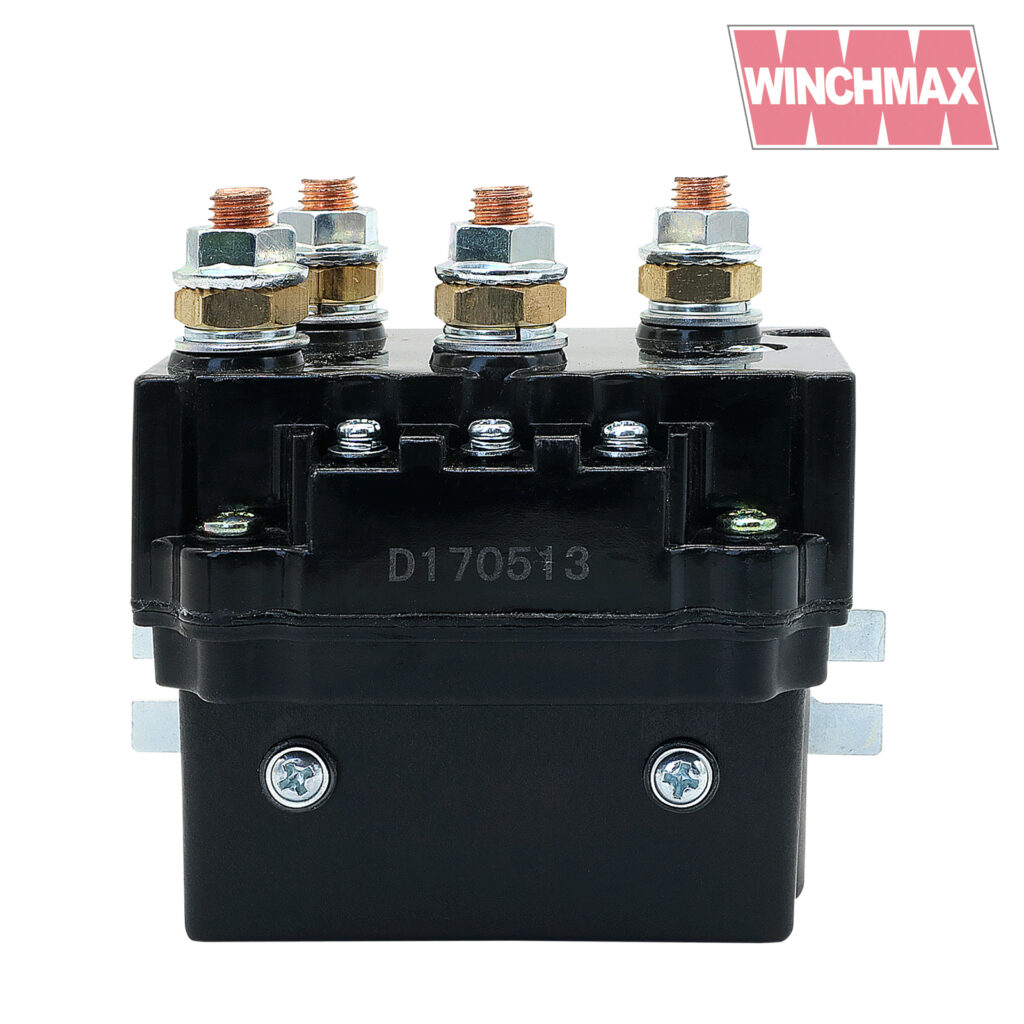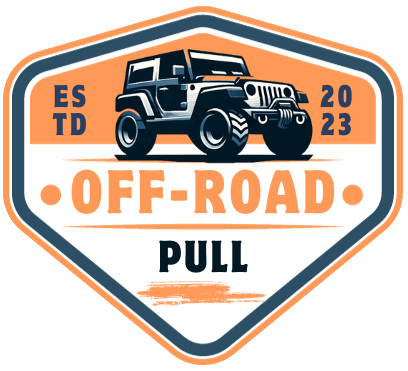Trying to decide between a winch contactor and a solenoid? The choice affects how safely and reliably your winch operates, especially under heavy loads. In this guide, we’ll compare winch contactors and solenoids in plain language, covering current handling, lifespan, cost, maintenance, and best-use cases. Whether you’re building a 12V automotive winch system or upgrading an industrial-grade setup, this breakdown helps you choose the right control component.
Quick Summary
What’s the difference between a winch contactor and a solenoid?
A winch contactor is a heavy-duty switch built for high-current, frequent use in industrial or commercial winch systems. It lasts longer and resists heat and arcing. A winch solenoid is smaller, cheaper, and easier to install—ideal for light-duty or recreational winching. Use a contactor for demanding loads. Choose a solenoid if you winch occasionally and need a compact, affordable solution.
What are Winch Contactors?

Winch contactors are electrically controlled switches designed to regulate the flow of high currents in winch systems. They operate by using an electromagnet to move internal contacts, allowing or interrupting the current flow.
Advantages of Using Winch Contactors
- High Current Handling Capacity: Winch contactors are designed to handle high current loads, making them ideal for heavy-duty applications.
- Longer Lifespan: Built with robust materials, they offer durability and a longer operational life.
- Reduced Arcing and Heat Build-Up: The design minimizes arcing, which in turn reduces heat and wear on the contacts.
Applications of Winch Contactors
- Heavy-Duty Winch Systems: Suitable for industrial-grade winches that require reliable and consistent performance.
- Industrial and Commercial Applications: Used in various commercial and industrial setups where high power and reliability are essential.
What are Winch Solenoids?

Solenoids are electromechanical devices that convert electrical energy into mechanical movement. They use a coil of wire to generate a magnetic field, which moves a plunger to create or break an electrical connection.
Advantages of Using Solenoids
- Compact Size: Solenoids are smaller and lighter, making them easy to install in tight spaces.
- Lower Cost: Generally more affordable than contactors, making them a cost-effective choice for many applications.
- Easy Installation: Their simple design allows for quick and easy installation.
Applications of Solenoids
- Light-Duty Winch Systems: Ideal for lighter winching tasks such as those in automotive or recreational vehicles.
- Automotive and Recreational Applications: Commonly used in cars, trucks, and recreational vehicles where space and cost are significant considerations.
Key Differences Between Winch Contactors and Solenoids
| Feature | Winch Contactor | Solenoid |
|---|---|---|
| Current Capacity | High – Handles heavy loads | Moderate – For lighter tasks |
| Durability | Long lifespan under harsh conditions | Shorter lifespan under heavy use |
| Size | Larger, industrial build | Compact and lightweight |
| Cost | Higher upfront | Budget-friendly |
| Best Use Case | Industrial, commercial, heavy-duty winches | Recreational, automotive, light-duty |
Comparison of Winch Contactors and Solenoids
When choosing between winch contactors vs solenoids, it’s important to understand how they differ in various aspects such as current handling capacity, lifespan, cost, maintenance, noise, and heat dissipation. Here’s a detailed breakdown:
Current Handling Capacity
Winch Contactors:
Winch contactors are built to handle high currents.
They can manage heavy loads without overheating or failing, making them the go-to choice for industrial and heavy-duty winching applications.
For instance, if you’re using a winch to lift heavy machinery or vehicles, a contactor’s ability to handle large amounts of current without losing efficiency is essential.
Solenoids:
Solenoids, on the other hand, are best suited for lower current applications.
They are ideal for light-duty tasks where the current demand is not as high.
This makes them ideal for smaller recreational or automotive winches, such as those used to pull a small boat or a car out of a ditch.
Lifespan and Durability
Winch Contactors: A major advantage of winch contactors is their durability.
They are constructed with heavy-duty materials that can withstand harsh conditions and constant use.
This robust construction ensures a longer lifespan, making contactors ideal for applications where downtime must be avoided.
Solenoids: Solenoids are durable but not as much as contactors, especially under heavy use.
They are designed for less intense applications and may wear out faster if subjected to heavy-duty tasks continuously.
For regular, light-duty usage, solenoids can still offer good longevity.
Cost and Installation Considerations
Winch Contactors: Generally, winch contactors come with a higher initial cost. This is due to their complex design and the high-quality materials used in their construction.
However, their durability and long-term performance often justify the investment, as they provide long-term value and reliability.
Solenoids: Solenoids are more budget-friendly and easier to install. Their simpler design means they cost less upfront and can be installed quickly, which can save on labor costs.
For projects where budget constraints are a concern, and the winch will not be used for heavy-duty tasks, solenoids are an excellent choice.
Maintenance Requirements
Winch Contactors: Due to their heavy-duty nature, winch contactors require regular maintenance to ensure optimal performance. This maintenance can include checking for wear and tear, ensuring connections are tight, and cleaning to prevent dust and debris buildup. Regular maintenance can extend the lifespan of the contactor.
Solenoids: Solenoids generally need less maintenance compared to contactors. However, because they are not as durable under heavy use, they might need to be replaced more frequently if used in demanding applications. For light-duty applications, the lower maintenance needs can be a significant advantage.
Noise Levels and Heat Dissipation
Winch Contactors: Winch contactors are designed to minimize noise and efficiently dissipate heat. This is crucial for heavy-duty applications where excessive noise and heat can cause issues with performance and safety. Their ability to reduce arcing helps keep heat buildup to a minimum, ensuring smoother and quieter operation.
Solenoids: Solenoids can be noisier and may generate more heat, especially when used continuously or under higher loads than they are designed for. This can be a drawback in applications where quiet operation and efficient heat management are critical. In recreational or automotive settings, the noise and heat might be less of an issue, but it’s still something to consider.
Choosing the Right Component
When deciding between a winch contactor and a solenoid, it’s important to consider several factors to ensure you select the best component for your needs.
Factors to Consider
Load Requirements: Evaluate the amount of current your winch needs to handle. Winch contactors are designed for higher current loads, making them ideal for heavy-duty applications. If your winch is expected to pull or lift very heavy objects, a contactor is the better choice.
Duty Cycle: Think about how often and how long you will use your winch. If your winch will be used frequently and for extended periods, contactors are more suitable due to their durability and ability to handle continuous use. For occasional or short-term use, solenoids can be sufficient and more cost-effective.
Environmental Conditions: Consider the environment in which your winch will operate. Winch contactors’ robust construction makes them suitable for harsh conditions like extreme temperatures, moisture, or dust, while solenoids are better suited for standard environments.
Power Supply Capabilities: Ensure that your power supply can support the component you choose. Contactors generally require a more stable and higher power supply compared to solenoids. Verify that your power source matches the requirements of the component to avoid performance issues.
Recommendations for Different Applications
Heavy-Duty Industrial Use: For industrial applications that demand high reliability and performance, winch contactors are recommended. Their high current handling capacity and durability make them suitable for lifting heavy machinery, construction equipment, and other demanding tasks.
To find suitable models with integrated smart controls, check out our best winches with advanced control systems.
Light-Duty Recreational Use: For recreational purposes or light-duty tasks, solenoids are a great choice. They are cost-effective, easy to install, and perform well for applications such as pulling small boats, vehicles, or in automotive winching systems. Solenoids are perfect for situations where the winch is used occasionally and not under heavy strain.
Conclusion
Choosing between winch contactors and solenoids depends on your specific needs. By understanding the strengths and applications of each component, you can ensure your winch operates efficiently and reliably.

